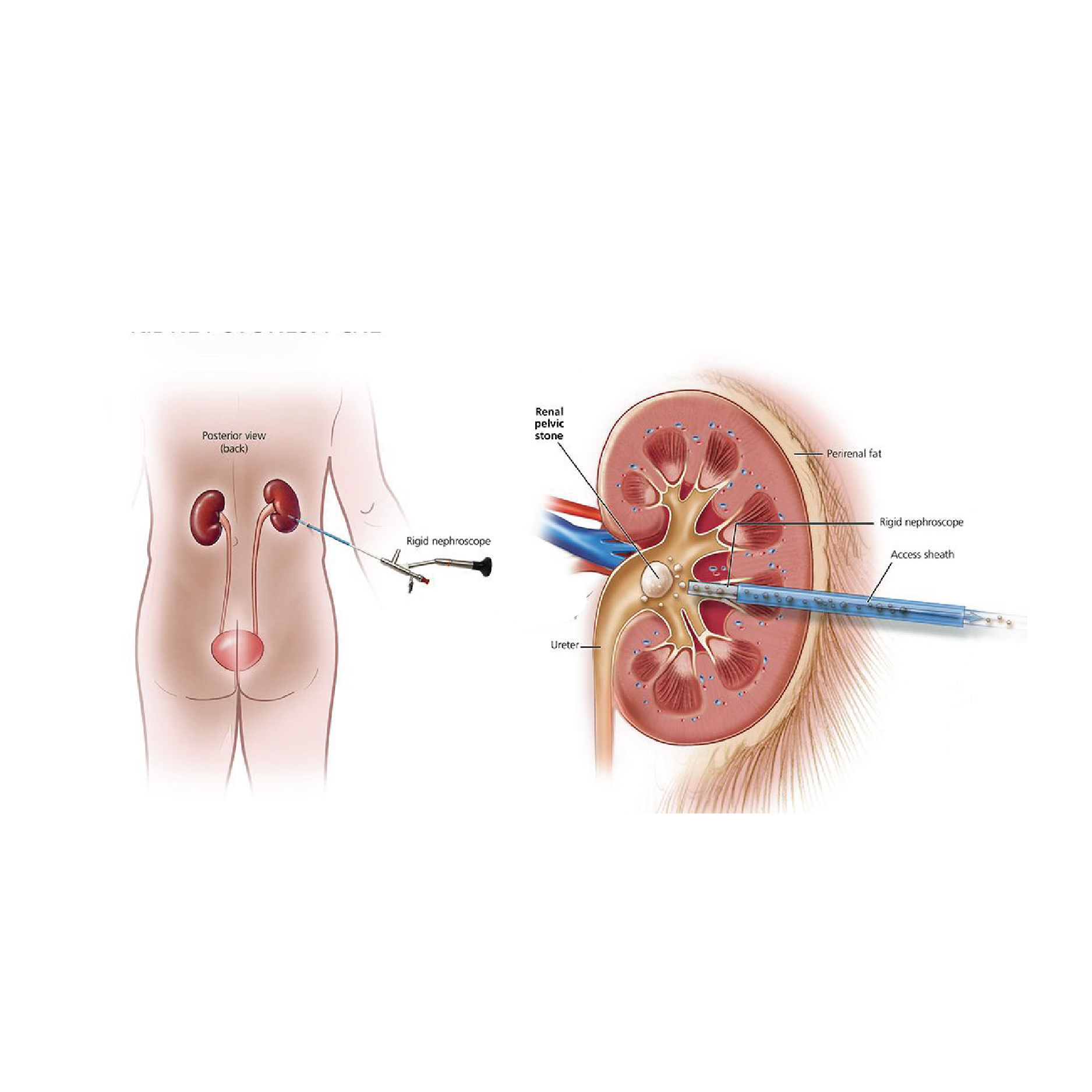Laparoscopic Urolithiasis Surgery in Agra | Kidney & Ureteral Stone Removal by Dr. Shwetank Prakash
Call Us when you Need Help!
Laparoscopic Urolithiasis Management: Procedures, Benefits, and Recovery
Laparoscopic urolithiasis management is a minimally invasive approach to treating large, complex, or obstructive urinary stones in the kidney, ureter, or bladder. This procedure provides an effective alternative to open surgery, ensuring faster recovery, minimal pain, and reduced complications.

Understanding Urolithiasis (Urinary Stones)
Urolithiasis refers to the formation of stones (calculi) in the urinary system, including the kidney, ureter, or bladder. These stones develop when minerals crystallize in the urine due to dehydration, high salt intake, or metabolic imbalances. When stones cause severe pain, blockage, or infections, laparoscopic surgery is required for removal.
Who Needs Laparoscopic Urolithiasis Management?
Laparoscopic surgery is recommended for patients with:
- Large kidney stones (>2 cm) that cannot pass naturally.
- Obstructive ureteral stones causing urine blockage.
- Recurrent or complex urinary stones resistant to other treatments.
- Failed previous treatments like ESWL (shock wave therapy) or RIRS (laser surgery).
- Severe pain, urinary tract infections, or kidney damage due to stones.
Types of Laparoscopic Urolithiasis Management Procedures
1. Laparoscopic Pyelolithotomy (Kidney Stone Removal)
- For large kidney stones located in the renal pelvis.
- A small incision is made in the kidney to remove stones directly.
2. Laparoscopic Ureterolithotomy (Ureteral Stone Removal)
- For stones stuck in the ureter that cause blockage or severe pain.
- The stone is extracted through a tiny incision in the ureter.
3. Laparoscopic Cystolithotomy (Bladder Stone Removal)
- Used for large bladder stones that cause urinary retention.
- Stones are removed through a small incision in the bladder wall.
Advantages of Laparoscopic Urolithiasis Surgery
- Minimally invasive with small incisions and less scarring.
- Faster recovery and shorter hospital stay (1-2 days).
- Minimal blood loss and lower risk of infection.
- High success rate with complete stone clearance.
- Less post-operative pain compared to open surgery.
Step-by-Step Laparoscopic Urolithiasis Surgery Procedure
- Anesthesia Administration – General anesthesia is given for a painless procedure.
- Small Incisions – Tiny keyhole incisions (5-10 mm) are made in the abdomen.
- Insertion of Laparoscope – A camera provides a magnified view for precision.
- Stone Extraction – The stone is carefully removed from the kidney, ureter, or bladder.
- Stent Placement (if needed) – A temporary stent may be inserted to aid urine drainage.
- Closure and Recovery – Incisions are closed with minimal sutures, and the patient is monitored post-surgery.
Recovery After Laparoscopic Urolithiasis Surgery
- Most patients are discharged within 24-48 hours.
- Mild pain and temporary blood in urine may occur for a few days.
- Increase water intake to flush out any residual stone fragments.
- Avoid heavy lifting and strenuous activities for 2-3 weeks.
- Follow-up imaging tests ensure complete stone clearance.
Potential Risks and Side Effects
While laparoscopic stone removal is highly safe, minor side effects may include:
- Temporary hematuria (blood in urine) due to the surgical procedure.
- Mild urinary discomfort that resolves within a few days.
- Rare risk of infection or residual stone fragments requiring further treatment.
Preventing Future Kidney Stones
- Drink at least 2-3 liters of water daily to prevent stone formation.
- Limit salt, oxalate-rich foods, and excessive protein intake.
- Maintain a healthy weight and active lifestyle. Regular follow-ups and urine tests to monitor kidney health.
Get expert laparoscopic urolithiasis treatment in Agra with Dr. Shwetank Prakash, a specialist in minimally invasive kidney, ureter, and bladder stone removal. Book your consultation today!
Why Choose Dr. Shwetank Prakash for Laparoscopic Minimal Invasive Surgery in Agra?
Choosing Dr. Shwetank Prakash for Minimally Invasive laparoscopic surgery in Agra ensures expert surgical care, the latest minimally invasive techniques, and a patient-first approach. Dr. Prakash is a highly experienced laparoscopic and minimally invasive surgeon, with a focus on precision, safety, and faster recovery.
- Faster recovery as minimally invasive techniques reduce downtime
- Minimal scarring due to small incisions leading to better cosmetic outcomes
- Less postoperative pain compared to traditional open surgery
- Lower risk of complications with advanced techniques ensuring safety and precision
Patient-Centric Approach
Dr. Prakash is known for his personalized treatment plans, ensuring every patient receives individualized care. His detailed consultations include:
- A clear understanding of the procedure
- Explanation of potential risks and expected outcomes
- Complete transparency to help patients feel confident about their treatment
- With a proven track record of successful surgeries and high patient satisfaction
- Dr. Shwetank Prakash is a leading expert in gallbladder and Kidney stone removal surgery in Agra.
FAQs
There are many questions about the service, we have selected frequently asked questions about this service. If you do not see your answer, please contact us.
What is minimally invasive laparoscopic surgery?
What are the advantages of laparoscopic surgery over traditional open surgery?
Smaller incisions and minimal scarring
Reduced pain and discomfort
Shorter hospital stay and faster recovery
Lower risk of infections and complications
Quicker return to daily activities
What types of conditions can be treated with laparoscopic surgery?
Gallbladder removal (cholecystectomy)
Hernia repair
Appendix removal (appendectomy)
Kidney stone and prostate surgery
Weight loss (bariatric) surgery
Gastrointestinal and colorectal surgeries
Is laparoscopic surgery safe?
How long does it take to recover from laparoscopic surgery?
Will I have visible scars after laparoscopic surgery?
Is laparoscopic surgery painful?
Do I need to stay overnight in the hospital after laparoscopic surgery?
What precautions should I take after laparoscopic surgery?
Follow the prescribed diet and medications
Keep the incision area clean and dry
Attend follow-up appointments for recovery assessment
Who is a good candidate for laparoscopic surgery?
Why Choose Us?
Are you having health problems? Contact us today!
Address Business
Contact With Us
Call Us 24/7: 81 22 22 22 22
